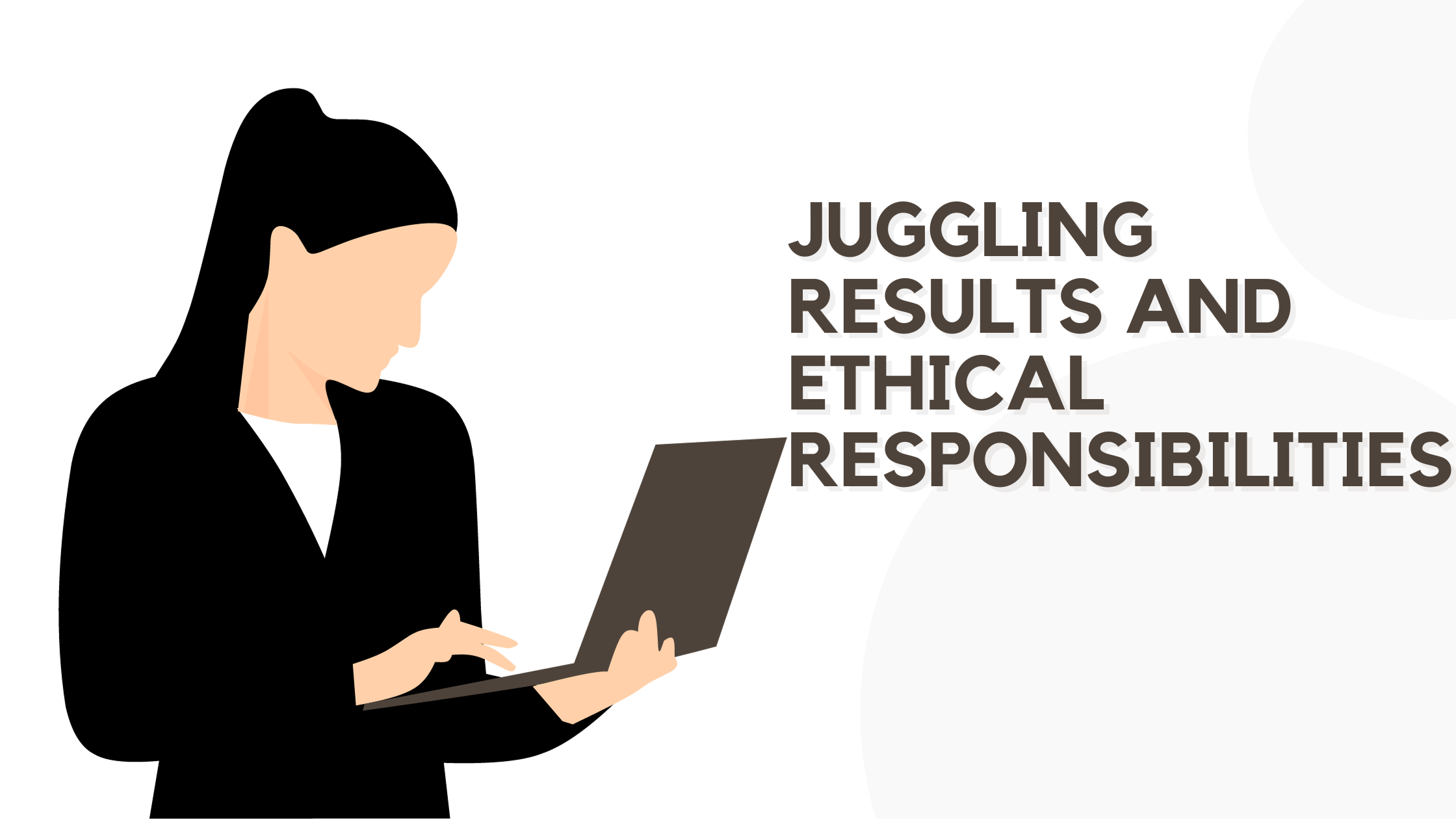
Explore how ethical responsibility plays a critical part in developing successful digital marketing strategies. Find out how promoting your business in line with moral principles increases consumer loyalty and trust. Explore the field of digital marketing strategies with the help of knowledgeable advice and useful hints.”
Table of Contents
Introduction
Businesses are always looking for new and creative ways to connect with their target audience in the fast-paced digital landscape of today. It’s important to keep in mind the ethical obligation that comes with using digital marketing methods, even though the emphasis is frequently on achieving outcomes.
Comprehending the Role of Ethics
The moral duty of firms to conduct their online operations in a fair, honest, and transparent manner is known as ethical responsibility in digital marketing. It includes a variety of actions, including as accurately informing customers and protecting their privacy.
The Significance of Ethical Online Promotion
Developing Your Audience’s Trust
Building trust is one of ethical digital marketing’s main advantages. Customers are more inclined to engage and buy from a company when they believe that it is being honest and upfront in its marketing efforts.
Extended Brand Allegiance
Using ethical marketing techniques helps build enduring brand loyalty. Consumers are more likely to remain devoted to a brand that continually exhibits its dedication to moral behavior.
Good Reputation and Image for the Brand
Reputation and image of a brand can be greatly improved by continuing to use digital marketing in an ethical manner. This can then result in favorable word-of-mouth and recommendations.

Digital Marketing Ethics: Data Security and Privacy Concerns
Protecting the privacy of customers is crucial. Companies need to be careful while handling consumer data, making sure that it is gathered, kept, and utilized in accordance with applicable laws.
Objectivity in Advertising
Honest and transparent advertising is crucial. Marketing materials should only include true and supported statements about any promises or claims they make.
Steer Clear of Deceptive Practices
False advertising and clickbait are examples of deceptive strategies that ought to be completely avoided. Such actions damage confidence and may have unfavorable effects.
Social Occupation
Digital marketing need to be advantageous to society as well as to businesses. This can entail undertakings like eco-friendly procedures or collaborations with charitable organizations.
Juggling Results and Ethical Responsibilities
Reaching a Midway Position
It can be difficult to strike a balance between marketing objectives and moral obligation. It is feasible to develop tactics that give both priority, though.
Measuring Ethical Success Metrics ought to take ethical criteria and ROI into consideration. This could involve keeping tabs on user reviews, observing social media sentiment, and evaluating a brand’s reputation.

Also Reads:-
How to Improve Digital Marketing Strategies with Customer Journey Mapping?
why customer journey mapping is important
How to Achieve Hyper-Personalization in Digital Marketing Strategies?
Why Should You Dive Deep into Digital Marketing Strategies?
Have You Explored the Depths of Digital Marketing Strategies?
Conclusion
In the digital era, a company’s marketing plan should prioritize ethical responsibility. Transparency, honesty, and customer trust are key components that businesses may prioritize to establish enduring relationships with their audience.
Frequently Asked Questions
Q. Why is ethical responsibility important in digital marketing?
A. Ethical responsibility ensures that businesses operate with integrity, fostering trust and long-term loyalty among customers.
Q. How can businesses maintain data privacy in their digital marketing efforts?
A. Businesses can implement strict data protection policies, use secure storage systems, and comply with relevant privacy regulations.
Q. What are some examples of unethical digital marketing practices?
A. Examples include false advertising, spamming, and using deceptive tactics to lure customers.
Q. Can ethical digital marketing strategies still be effective in driving results?
A. Absolutely. Ethical strategies can lead to sustainable, long-term success by building a loyal customer base.
Q. What steps can businesses take to ensure transparency in their digital marketing efforts?
A. Businesses should provide clear, accurate information in their advertising, avoid exaggerated claims, and be upfront about their products or services.
